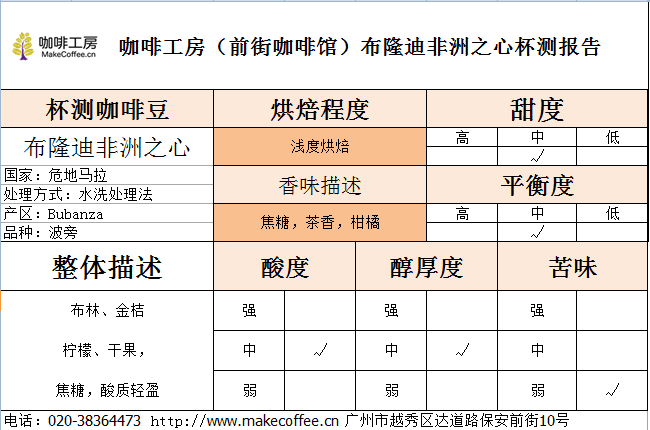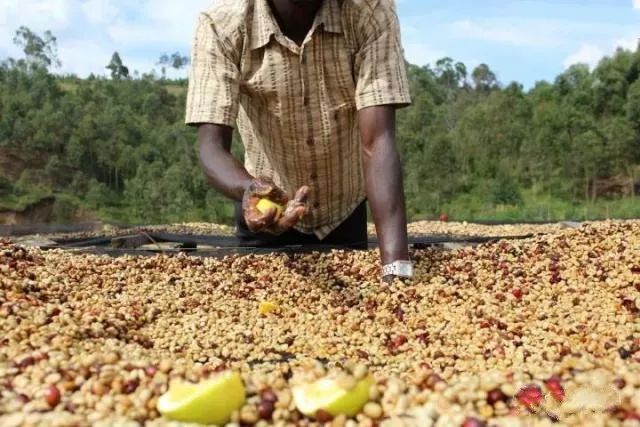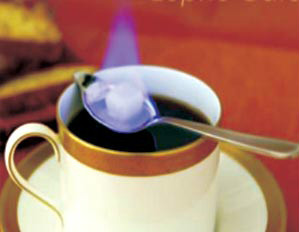Burundian coffee bean flavor taste manor characteristics story Burundian coffee boutique coffee introduction
For professional baristas, please follow the coffee workshop (Wechat official account cafe_style)
Hand-made Burundian coffee beans. 15g powder, medium grinding (small Fuji ghost tooth cutter 4 grinding), v60 filter cup, 88-89 degrees water temperature, 30g water injection for the first time, steaming for 27 seconds, water injection to 105g water cut off, wait for the amount of water in the powder bed to reach half and then water injection, slow water injection until 225g water, no water powder ratio at the end, 1:15, extraction time 2:00

Country: Burundi
Growth: 1750 m
Producing area: Luthona town
Baking degree: medium baking
Treatment method: washing treatment
Variety: bourbon species
Treatment plant: Nialu Nashi Cooperative
Flavor: licorice, salicylic acid, spice tea taste
Burundi is located south of the equator in east-central Africa. It is bordered by Rwanda to the north, Tanzania to the east and south, Congo (Kinshasa) to the west, and Lake Tanganyika to the southwest. There are many plateaus and mountains in the territory, most of which are composed of the plateau on the east side of the East African Rift Valley, with an average elevation of 1600 meters above sea level, which is known as the "mountain country".
The capital is Bujumbura. The lakeside and river valleys in the west and the savanna climate in the east; the tropical mountain climate in the central and western regions. The annual average temperature is 20-24 ℃, which is as high as 33 ℃. The heavy rainy season is from March to May, the light rainy season is from October to December, and the other months are dry season.

Burundi has the most diverse and successful coffee industry in the world, and has its own characteristics. Coffee in this country was introduced by Belgian colonists in 1930 and is now grown only on small farms. Unfortunately, many of these farms are on the border with war-torn Rwanda, putting pressure on coffee production.
Burundian coffee beans are almost all Arabian coffee beans, while coffee trees in Ngozi are planted at an altitude of more than 1200 meters. Burundian coffee beans are aromatic and have excellent acidity, and most of the products are exported to the United States, Germany, Finland and Japan.
The origin of the town of Reuters, which is a cooperative organized by small family coffee farmers, has a total of 539 small coffee farmers, of whom 148 are women. on average, each family grows 10,200 coffee trees (at least 1000 coffee trees per hectare), which shows its weak annual income and is a typical poor small coffee farmer family.

Producing area: Luthona town
Producer: Niaruna Cooperation (NyarunasiCooperative)
Variety: Bourbon
Altitude: 1400 m to 1700 m
Soil: volcanic rock soil
Grade: AA
Treatment: washing
Harvest time: March 2017
Flavor features: honey, kumquat, violet, light acidity, smooth taste, saturated aroma, rich and long-lasting finish

Purchase connection: https://item.taobao.com/item.htm?spm=a1z10.3-c.w4002-15673140470.9.c68ca3bRdpKxT&id=532974896074
Mobile phone purchase: Taobao merchandise: Qianjie 2017 new production season Burundian Burundi Heart of Africa washing Bopin single boutique coffee http://b.mashort.cn/S.b5G2xf?sm=75ebda (copy this information, and then open the new version of Mobile Taobao, you can visit this link directly)
The East African newspaper reported on the 8th that in order to help Burundi integrate into the world coffee market as soon as possible, Starbucks has funded officials of the Burundian Coffee Management Commission to study abroad, and Starbucks executives will also visit Burundi this month to discuss cooperation with relevant parties.
Coffee is the main export industry in Burundi, and Starbucks' launch of Burundian coffee in its chain stores will increase the global visibility of Burundian coffee. It is estimated that 80 per cent of the 500000 coffee growers in Burundi will have a significant increase in income in the coming years.
In recent years, Starbucks has paid more and more attention to the coffee industry in Africa and began to increase the price of coffee with Burundian Arabrica, a coffee grower in Tanzania, Ethiopia, Rwanda and Kenya. The purchase price of fresh coffee in Burundi has been adjusted from 120 Burundian francs / kg to 200 Burundian francs / kg. This is excellent news for countries that earn more than 80% of their foreign exchange earnings from coffee exports. Due to the abundant coffee growing season Rain Water and good field management, coffee production in 2004-05 was significantly higher than that of last year. According to Burundian officials, coffee bean production this year will reach 36000 tons, an increase of six times over last year (5600 tons). The United States, Starbucks, the largest coffee retailer in the world, said a few days ago that it would increase its purchase of coffee from Burundi. Industry insiders said that Starbucks' move will help boost the economic development of Burundi. The New York Stock Exchange made a decision with the Burundian government and coffee production, operation and export enterprises on February 17, 2005. It agreed to lower the pricing index of Burundian coffee listed on the exchange by 200 points, that is, an increase of 2 cents per pound (equivalent to 50 Burundian francs per kilogram). Subsequently, the chairman of the New York Stock Exchange informed the Burundian Ministry of Agriculture and Animal Husbandry, the Ministry of Finance, the Ministry of Industry and Commerce and the Burundian Coffee Company. Burundian Minister of Agriculture and Animal Husbandry Pierre Ndikumagange was invited to attend the opening ceremony of the New York Stock Exchange on April 14 to raise the profile of Burundian coffee in the international coffee market.

Important Notice :
前街咖啡 FrontStreet Coffee has moved to new addredd:
FrontStreet Coffee Address: 315,Donghua East Road,GuangZhou
Tel:020 38364473
- Prev

Puerto Rican Coffee Flavor and Taste introduction to the Origin of Puerto Rico Coffee
It is also a kind of coffee with almost no bitter taste, and its strong aromatic flavor is especially suitable for drinking after meals.
- Next

The flavor and taste of Ugandan coffee beans the characteristics of the manor producing area introduce the fine coffee beans of Uganda
Ugandan coffee is mainly exported to the European Union, of which Germany, Italy and other countries are the largest buyers of coffee. The quality of Ugandan coffee: Bujisu Bugisu AA (only 4% of the country's total production) Bujisu Bugisu A Vago Wugar A (all of the above are water washing treatment) and a small amount of sun-dried bean beads Drugar Bugisu Bugisu AA in which AA said
Related
- Detailed explanation of Jadeite planting Land in Panamanian Jadeite Manor introduction to the grading system of Jadeite competitive bidding, Red bid, Green bid and Rose Summer
- Story of Coffee planting in Brenka region of Costa Rica Stonehenge Manor anaerobic heavy honey treatment of flavor mouth
- What's on the barrel of Blue Mountain Coffee beans?
- Can American coffee also pull flowers? How to use hot American style to pull out a good-looking pattern?
- Can you make a cold extract with coffee beans? What is the right proportion for cold-extracted coffee formula?
- Indonesian PWN Gold Mandrine Coffee Origin Features Flavor How to Chong? Mandolin coffee is American.
- A brief introduction to the flavor characteristics of Brazilian yellow bourbon coffee beans
- What is the effect of different water quality on the flavor of cold-extracted coffee? What kind of water is best for brewing coffee?
- Why do you think of Rose Summer whenever you mention Panamanian coffee?
- Introduction to the characteristics of authentic blue mountain coffee bean producing areas? What is the CIB Coffee Authority in Jamaica?

